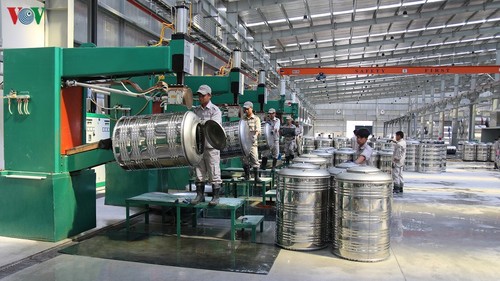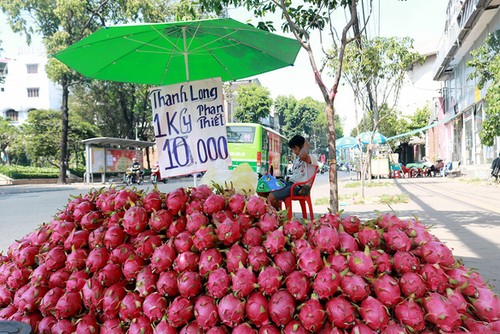
Many industries including mechanics, processing, manufacturing, garments, and textiles are facing difficulties due to the Covid-19 epidemic (Photo: Nguyen Hang/VOV1)
|
The Covid-19 epidemic has slowed Vietnam’s exports to China and hurt the country’s mechanics, processing, manufacturing, garments, and textiles sectors by reducing the flow of input materials, accessories, spare parts, and components for production.
Economist Le Dang Doanh said Vietnam’s economic growth will likely drop about 1% against the target set by the National Assembly.
“Vietnam’s economy will be seriously impacted by the Covid-19 epidemic. Tourism, exports to, and imports to and from China are the most affected. Many domestic companies are having trouble finding sources of input materials, for example, Vietnam’s garment and textile sector, 60% of their product value from China,” Doanh said.
He added: “ I think Vietnam’s economic growth will decline about 1% due to the epidemic. Vietnam will have to make a huge effort to reach the growth target.”
Tran Thi Thu Hang, Director General of the Vietnam Agriculture and Foods Import-Export Company, said many businesses’ turnover has dropped due to the epidemic.
“Our agricultural products, which account for 60% of our sales, currently can’t be exported to China. The most affected items include fresh fruits, poultry eggs, and fresh farm produce,” Hang said.
 Covid-19 epidemic has affected the production and export of farm produce. In the photo, Binh Thuan blue dragons are sold on the sidewalk in HCMC. (Photo: Nhat Thinh /tuoitre.vn) Covid-19 epidemic has affected the production and export of farm produce. In the photo, Binh Thuan blue dragons are sold on the sidewalk in HCMC. (Photo: Nhat Thinh /tuoitre.vn)
|
The government, ministries, and agencies are taking drastic measures to control the epidemic and mitigate its impacts. Reviews on Vietnam’s export to China have been made to find a way and domestic market is an option.
Warehouses have been prepared to store in industrial and consumption goods. Cold storage warehouses have been prepared to store agro-aquatic products to ensure their quality.
Dinh Trong Thinh, a senior lecturer at the Academy of Finance, underlined the need to diversify export and import markets and reduce dependence on a single market to ensure sustainable growth.
“We need to improve domestic products to meet the requirements set by import markets with which we have signed free trade agreements. We need to increase the quality of our products to meet demand of developed countries and other markets to reduce our reliance on the Chinese market,” according to Thinh.
Thinh called for boosting the processing and auxiliary industry to meet domestic demand on raw materials and improve the quality of products, especially farm produce while increasing efficiency in production and diversity of Vietnam’s import and export items.